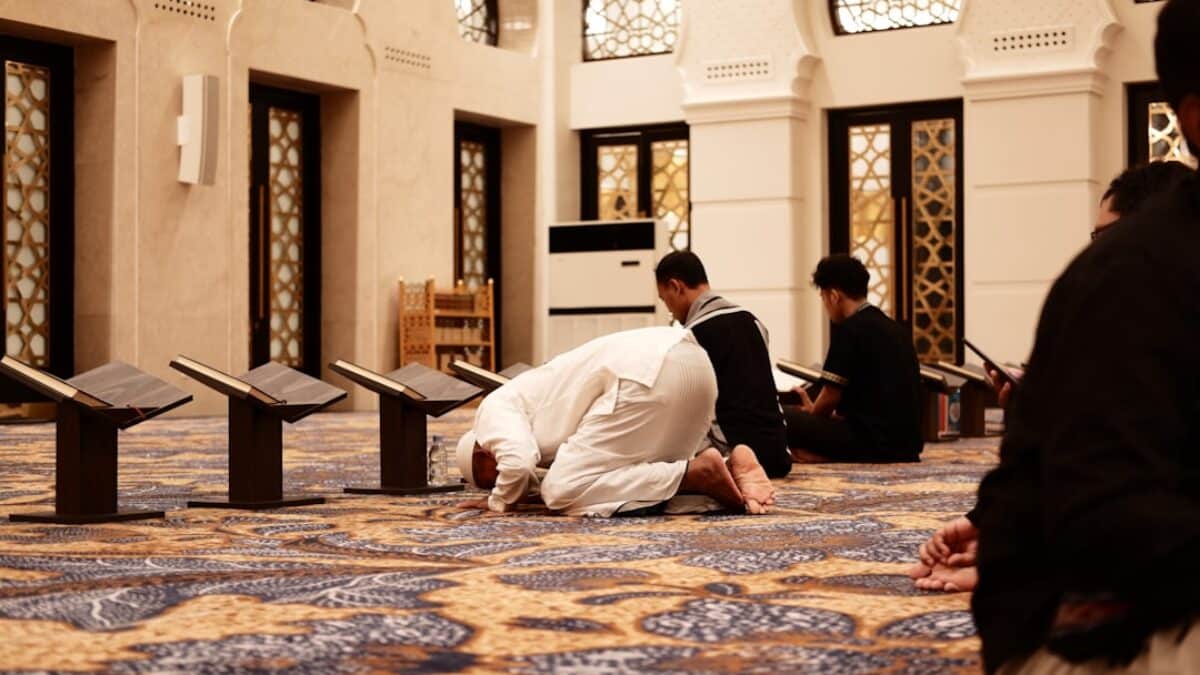Ramadan is the month in which the gates of mercy are flung open and the chains of past mistakes can be shattered through sincere dua for forgiveness. Every sunset brings the promise of a new dawn, and every prostration is a doorway through which the believer may step into the boundless compassion of Allah. In these sacred nights, hearts are softened, tears flow freely, and tongues are loosened with supplications that have been whispered by prophets, saints, and ordinary worshippers for over fourteen centuries. This article gathers the most powerful, rigorously authenticated duas for seeking pardon in Ramadan, explains their origins, demonstrates their correct usage, and shows how they can transform your spiritual life—starting tonight.
Understanding the Unique Opportunity of Ramadan Forgiveness
Allah says in the Qur’an: “And seek forgiveness of your Lord and repent to Him, [then] indeed, He will let you enjoy a good provision for a specified term and give every doer of favor his favor.” (11:3). Scholars note that Ramadan multiplies this divine promise through multiple mechanisms:
- The month itself is named after ramḍā’, the intense heat that scorches away impurities.
- The Night of Decree (Laylat al-Qadr) is “better than a thousand months” (97:3), making every sincere dua in Ramadan potentially weightier than decades of worship outside it.
- The Prophet ﷺ was asked which dua is most heard, and he answered, “In the last third of the night and after the obligatory prayers” (Tirmidhī). Both moments occur more frequently in Ramadan due to Taraweeh and Tahajjud.
These realities create what scholars call “a gravitational pull of mercy”: when the servant, the moment, and the supplication align, forgiveness is not only possible but inevitable for the one who meets Allah with sincerity.
Key Components of Authentic Dua for Forgiveness
1. Prerequisites: Preparing the Heart
Before uttering a single word, three inner conditions must be met:
- Tawbah (sincere repentance): Resolve to abandon the sin entirely. Imam Nawawi explains that without this resolution, the tongue’s plea is merely poetry.
- Humility (khushū‘): The Prophet ﷺ said, “Allah will continue to lift the believer near Him while the man lowers his head in humility.”
- Presence of heart (ḥuḍūr al-qalb): Ibn al-Qayyim likens distracted dua to “an arrow shot with a limp bow.”
2. The Linguistic Formula: What to Say
The Arabic wording of a dua must be soundly transmitted. Below are four pillars that recur in nearly every authentic supplication for forgiveness:
| Arabic Root | Meaning | Role in Dua |
|---|---|---|
| غ-ف-ر (gh-f-r) | To cover, conceal, and obliterate | Requests complete erasure of the sin |
| ح-س-ن (ḥ-s-) | To make beautiful, to rectify | Asks Allah to replace the evil deed with a good one |
| و-س-ع (w-s-ʿ) | To expand, to envelop | Implores vast mercy that exceeds one’s sins |
| ت-و-ب (t-w-b) | To return, to accept back | Seeks restoration to Allah’s favor |
Benefits and Importance of Seeking Forgiveness in Ramadan
The Prophet ﷺ promised a cascading set of mercies for the one who increases istighfār (seeking forgiveness):
- Immediate psychological relief—Sins are “black dots” on the heart; istighfār is the detergent that removes them, restoring inner clarity.
- Material sustenance—“Whoever increases in seeking forgiveness, Allah will make for him a way out of every distress and provide for him from sources he never expected.” (Abu Dawud)
- Elevation of rank—On the Day of Judgment, the slave’s scroll of bad deeds will be replaced with mountains of good deeds, as per the hadith of the man who met Allah with nothing but abundant istighfār (Ahmad).
Ramadan intensifies each benefit. Ibn Rajab notes that fasting itself is a shield (ma‘ṣiyah), so adding forgiveness upon forgiveness creates a “double armor” against Hellfire.
Authentic Supplications for Forgiveness with Translation and Context
1. Sayyid al-Istighfār (The Chief Supplication for Forgiveness)
Arabic:
Allāhumma anta rabbī, lā ilāha illā anta, khalaqtanī wa anā ʿabduka, wa anā ʿalā ʿahdika wa waʿdika mā istaṭaʿtu, aʿūdhu bika min sharri mā ṣanaʿtu, abū’u laka biniʿmatika ʿalayya, wa abū’u bidhanbī, faghfir lī, fa innahu lā yaghfiru dh-dhunūba illā anta.
Translation:
“O Allah, You are my Lord; there is no deity except You. You created me and I am Your slave, and I uphold Your covenant and promise as best as I can. I seek refuge in You from the evil of what I have done. I acknowledge Your blessings upon me, and I admit my sins. So forgive me, for none forgives sins except You.”
When to Recite
- Once in the morning and once in the evening (Bukhārī).
- Immediately after obligatory prayers for maximum acceptance.
Hidden Gems
The supplication contains every theological confession: tawḥīd (Oneness), rubūbiyyah (Lordship), niʿmah (blessings), and iqtirāf al-dhanb (admission of guilt). This completeness is why the Prophet ﷺ called it sayyid al-istighfār.
2. The Dua of Adam (as) After the Fall
Arabic:
Rabbanā dhalamnā anfusanā wa illam taghfir lanā wa tarḥamnā lanakūnanna mina al-khāsirī.
Translation:
“Our Lord, we have wronged ourselves, and if You do not forgive us and have mercy upon us, we will surely be among the losers.” (7:23)
This dua is strategically placed in Surah al-Aʿrāf after the story of Adam to teach every subsequent generation how to return to Allah. Recite it during the last sajdah of Taraweeh when fatigue tempts you to rush; imitate the first father’s humility and your fatigue becomes worship.
3. The Forgiveness Trio of Ramadan
The Prophet ﷺ taught three concise phrases to be said abundantly in Ramadan:
- Allāhumma innaka ʿafūwwun tuḥibbu al-ʿafwa faʿfu ʿannī (“O Allah, You are Pardoning and love to pardon, so pardon me” – Tirmidhī).
- Astaghfiru Allāha al-ʿaẓīma alladhī lā ilāha illā huwa al-ḥayya al-qayyūma wa atūbu ilayh.
- Subḥānaka wa bihamdika, ash-hadu an lā ilāha illā ant, astaghfiruka wa atūbu ilayk.
Recite them in sequences of 100 after each prayer; the Prophet’s wife ʿĀ’ishah (ra) said, “He would start his prayer with them and end his prayer with them.”
Practical Applications: Daily Routines, Taraweeh, and Laylat al-Qadr
Daily Routine Blueprint (From Fajr to Isha)
| Time | Action | Dua Focus | Duration |
|---|---|---|---|
| Pre-Fajr | 2 rakʿah Tahajjud | Recite 100× Sayyid al-Istighfār | 10 min |
| After Fajr | Remembrance until sunrise | Recite 3× Forgiveness Trio | 5 min |
| Mid-morning | Work commute dhikr | Audible recitation of Adam’s dua | Variable |
| Pre-Maghrib | 10 min duha prayer | Ask Allah to erase specific sin | 10 min |
| Post-Isha | One juz’ Taraweeh | Weep with the words: “I acknowledge my sins” | 45–60 min |
| Last 10 nights | Iʿtikāf or extended Tahajjud | Pray 100× Allāhumma innaka ʿafūwwun in every sajdah | 1–2 hrs |
Layering Your Supplications: A Case Study
Imagine Sarah, a professional who missed fasts last year due to pregnancy and feels overwhelmed. She applies the following stratagem:
- Immediate Tawbah: She repents for deliberately missing makeup fasts out of procrastination.
- Specificity: After Maghrib, she recites, “O Allah, forgive me for delaying the qadā’ fasts of Ramadan 1444H; grant me strength to complete all 12 remaining fasts before next Ramadan.”
- Following the Sunnah: She recites the dua of Adam (as) after every sajdah of Taraweeh to internalize humility.
- Community synergy: She gathers two friends on Zoom after Taraweeh for 15 minutes of collective istighfār; the Prophet ﷺ said, “When three people gather, Allah is the fourth.”
Within three weeks, Sarah completes her makeup fasts and reports a tangible increase in energy and barakah in her work schedule.
Frequently Asked Questions
What if I cannot pronounce the Arabic perfectly?
Allah looks at the heart, not the tongue. The Prophet ﷺ said, “Allah has overlooked for my ummah what is whispered to themselves so long as they do not act upon it or speak it.” If Arabic is inaccessible, recite a reliable transliteration and internalize the meaning. Over time, learn the Arabic gradually; the effort itself is rewarded.
How do I know if my forgiveness has been accepted?
Classical scholars list three signs:
Ease in obeying Allah—you find yourself avoiding the sin without spiritual fatigue. Increase in good deeds—you spontaneously perform acts that
























Post Comment